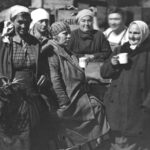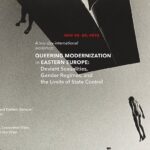
Frauenbildungsstätte Frauenhetz – Feministische Bildung, Kultur und Politik (Web)
Zeit: Do., 13.07.2023, 18:00-20:00 Uhr
Ort: Frauenhetz, Untere Weißgerberstr. 41, 1030 Wien
Wer sich für die Fortschritte von Gartenbau und Landwirtschaft interessiert, kann leicht den Eindruck gewinnen, dass es sich dabei um eine Geschichte ‚großer Männer‘ handelt. Weitgehend unbeachtet bleibt, dass auch Frauen die Entwicklung und Verbreitung eines alternativen Land-und Gartenbaus vorangetrieben haben. Pionierinnen wie Gabrielle Howard, Uta Lübke, Hemma und Luise Wurzer sind heute kaum noch bekannt – zu Unrecht. In ihrem Vortrag zeigt Mathilde Schmitt auf, wie engagiert und leidenschaftlich Frauen seit Beginn des 20. Jhds. den biologischen Land- und Gartenbau voranbrachten.
Moderation: Andrea Strutzmann
Die Veranstaltung ist für Frauen.
Mathilde Schmitt, Soziologin, Studium Agrar- und Sozialwissenschaften. Arbeits- und Forschungsschwerpunkte: Rurale Frauen- und Geschlechterforschung, Land-/Agrar-/Umwelt- und Ernährungssoziologie, Gender & Science, Inter- und Transdisziplinarität. Selbstständige Lehrbeauftragte und Autorin des Buches „Passion und Profession – Pionierinnen des ökologischen Landbaus“ gemeinsam mit Heide Inhetveen und Ira Spieker (Web).
- Heide Inhetveen, Mathilde Schmitt, Ira Spieker (Hg.): Passion und Profession. Pionierinnen des ökologischen Landbaus, München 2021 (Web)
Quelle: Frauenhetz Newsletter Juli 2023

 Centrum für Postcolonial und Gender Studies, Univ. Trier
Centrum für Postcolonial und Gender Studies, Univ. Trier  Universität für Angewandte Kunst Wien – Angewandte Festival
Universität für Angewandte Kunst Wien – Angewandte Festival  Österreichische Nationalbibliothek (ÖNB), Bildarchiv und Grafiksammlung
Österreichische Nationalbibliothek (ÖNB), Bildarchiv und Grafiksammlung  Workshop by the Research Platform „Transformations and Eastern Europe“, Univ. of Vienna
Workshop by the Research Platform „Transformations and Eastern Europe“, Univ. of Vienna